10 Best Foods for Joint Health, According to Doctors

As you get older, protecting your joint health can help you maintain mobility. And studies show this can, in turn, have a significant impact on your health-related quality of life, helping you to preserve your independence as you age.
“Your diet plays a big role in keeping your joints in top shape, especially if you suffer from arthritis or other joint issues,” says Raj Dasgupta, MD, a medical reviewer for NCOA and an ABIM quadruple board-certified physician specializing in internal medicine, pulmonology, critical care, and sleep medicine. “Incorporating the right foods into your diet can give your joints the essential vitamins, minerals, and nutrients they need to stay healthy and pain-free.”
Chris Mohr, Phd, RD, a fitness and nutrition advisor for Fortune Recommends Health, adds that when we nourish our bodies with the right foods to support our needs, we can reduce chronic inflammation, which is often a leading cause of joint pain and discomfort. “Healthy eating can also support cartilage health, which is important because cartilage is like a cushion for the joints,” he notes.
Wondering which foods to eat to protect your joint health? These are the top 10 to try, according to doctors.
RELATED: 6 Best Supplements for Joint Health, According to Doctors.
1
Fatty fish
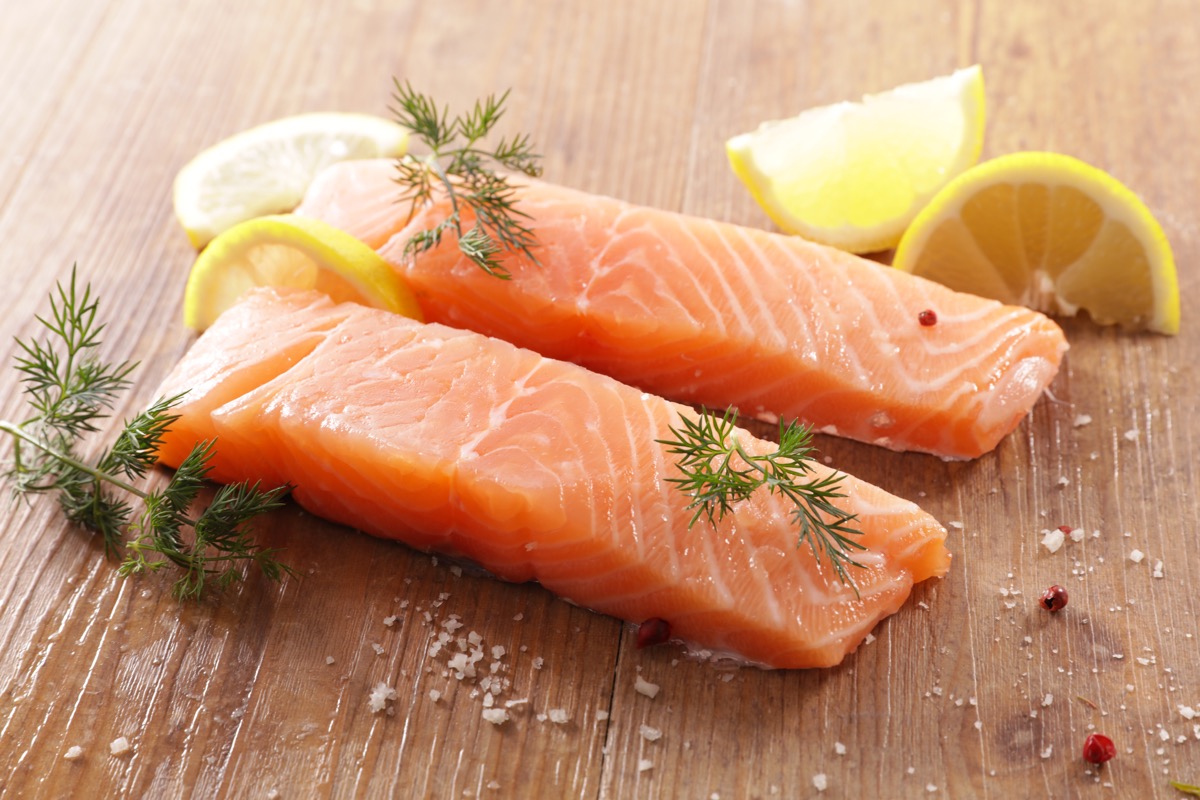
According to the Arthritis Foundation, people who regularly eat fatty fish are less likely to develop rheumatoid arthritis.
“Arthritis is—for the most part—a disease of inflammation. When your joints swell, turn red and feel warm to the touch, what you’re witnessing and feeling are inflammatory processes in motion,” the foundation writes. “Among the most potent edible inflammation fighters are essential fatty acids called omega-3s—particularly the kinds of fatty acids found in fish.”
In particular, Dagupta and Mohr recommend fish like salmon, mackerel, tuna, and sardines, which they say are packed with omega-3 fatty acids. “These fatty acids can help reduce joint pain and stiffness,” says Dasgupta.
2
Nuts and seeds
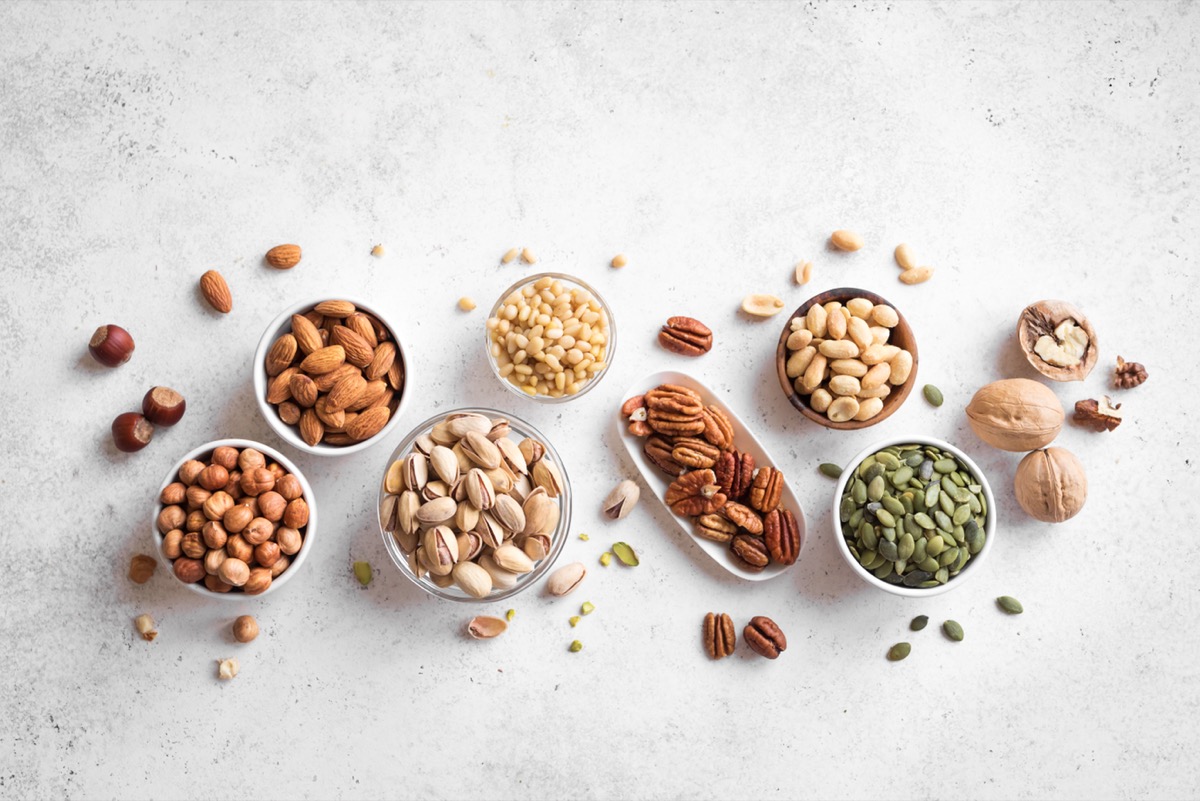
Nuts and seeds are also rich in omega-3 fatty acids, making them another ideal food for fighting joint pain. Mohr says they are “a good option for vegetarians and vegans who want to avoid fish.”
“Nuts and seeds like walnuts, chia seeds, and flax seeds provide healthy fats that help reduce inflammation and are rich in magnesium. Plus, they contain vitamin E, which has anti-inflammatory properties,” adds Dasgupta.
RELATED: 8 Simple Exercises That Will Make Your Joints Feel Better.
3
Olive oil
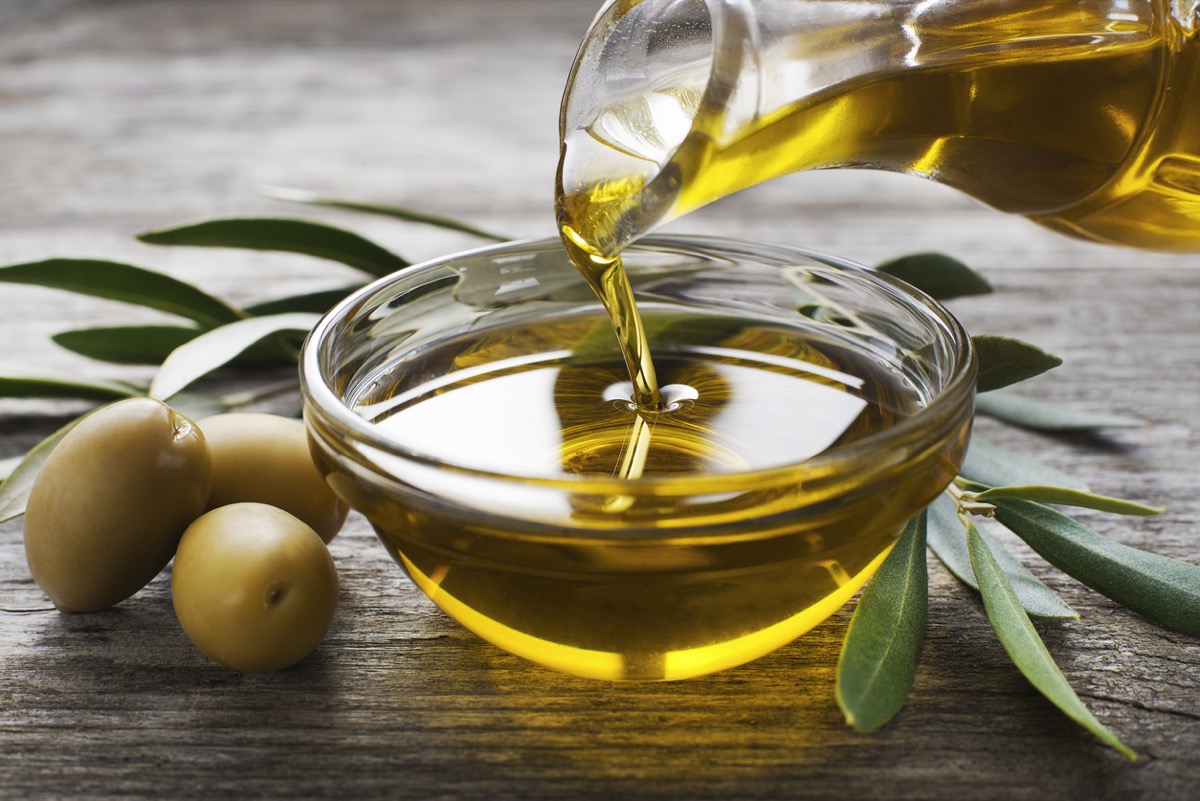
Dasgupta next recommends olive oil because it “contains oleocanthal, which has anti-inflammatory properties and is packed with monounsaturated fats that help reduce joint inflammation.”
The Arthritis Foundation adds that oleocanthal isn’t the only high-impact polyphenol in olive oil. “At last count, there were about 30 of these natural compounds. They’re found only in plants and some are unique to extra virgin olive oil (EVOO),” they write, noting that the benefits go far beyond the joints. “All are known to have anti-inflammatory, antioxidant, anti-allergy and anti-cancer effects.”
4
Turmeric
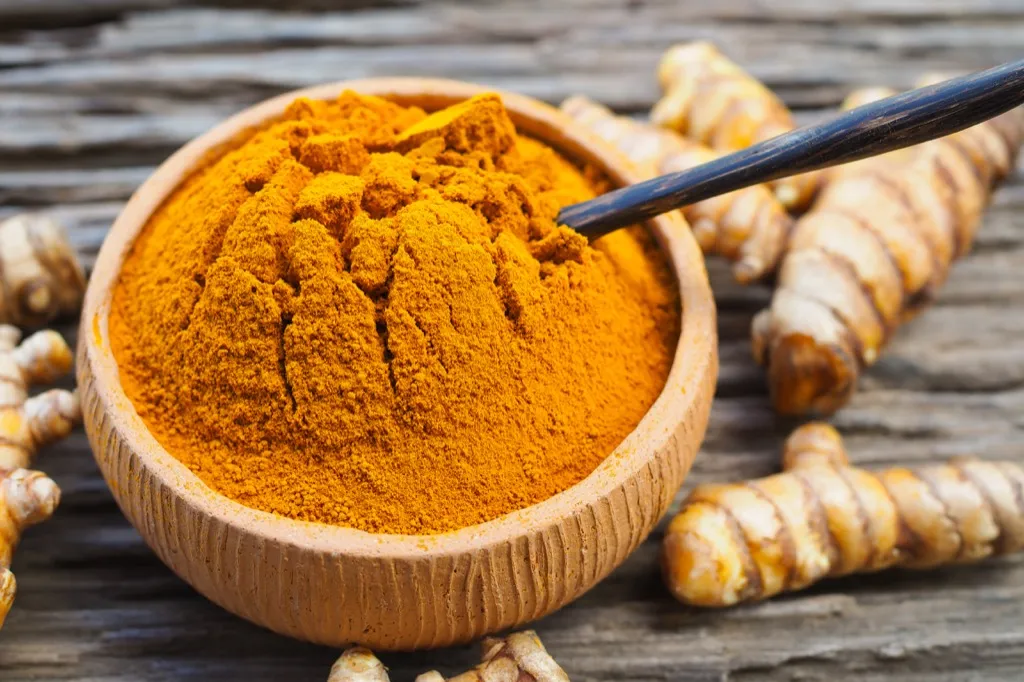
Turmeric supplements are often used as a pain treatment for people with arthritis. In fact, a 2021 study published in the Journal of Medicinal Food notes that their analgesic effect is comparable to a five-day treatment with ibuprofen.
However, you can also see joint health benefits by adding turmeric to your meals. “Turmeric contains curcumin, which has been shown to reduce inflammation in joints,” says Mohr.
RELATED: 5 Best Foods to Fight Inflammation, Doctors Say.
5
Ginger
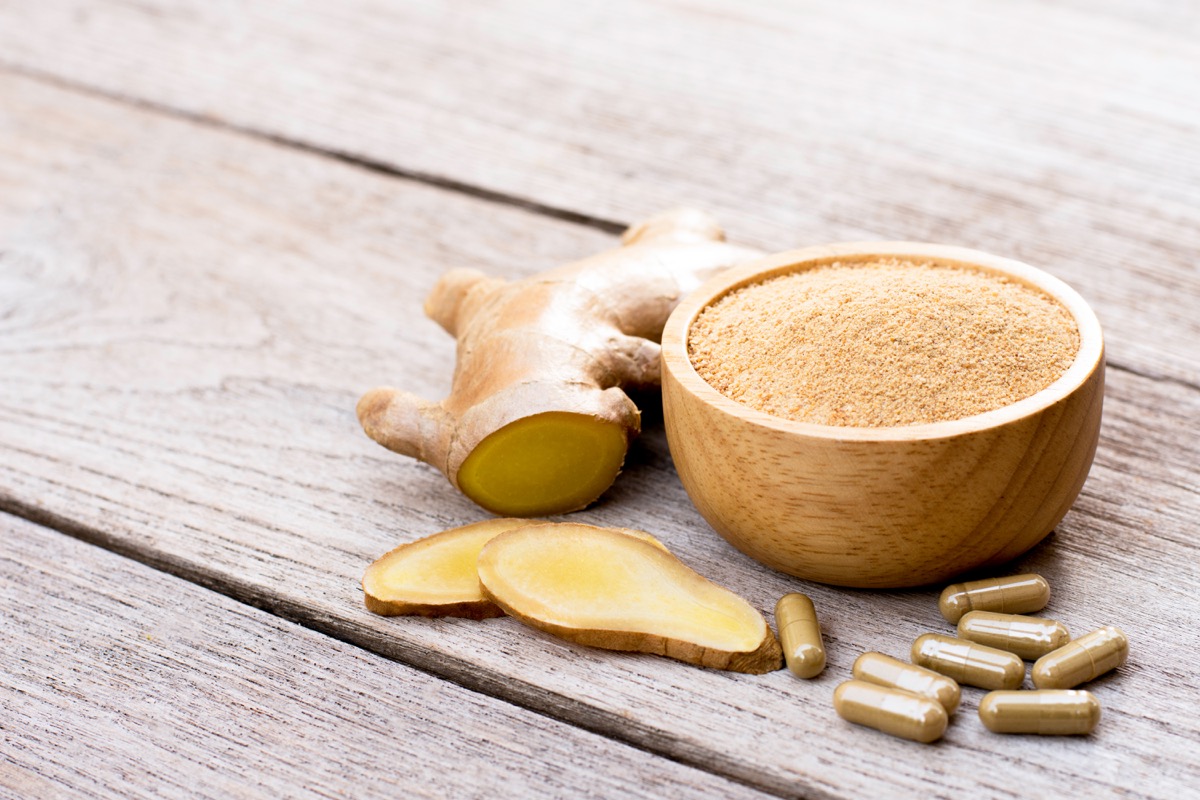
Ginger is another great choice when it comes to improving your joint health.
“Ginger packs a punch with gingerol, a compound that’s great for fighting inflammation and loaded with antioxidants. Including ginger in your meals can have a positive effect on joint pain, which is helpful for anyone dealing with arthritis,” Dasgupta says.
However, the Arthritis Foundation notes that if you’re looking to enhance your joint health, taking ginger in the form of a 250 mg daily supplement will work most efficiently.
“While ginger-containing foods are delicious, capsules give you the most bang for your buck. Look for brands that use ‘super-critical extraction,’ which preserves the active ingredients for the greatest benefit,” they advise.
6
Garlic
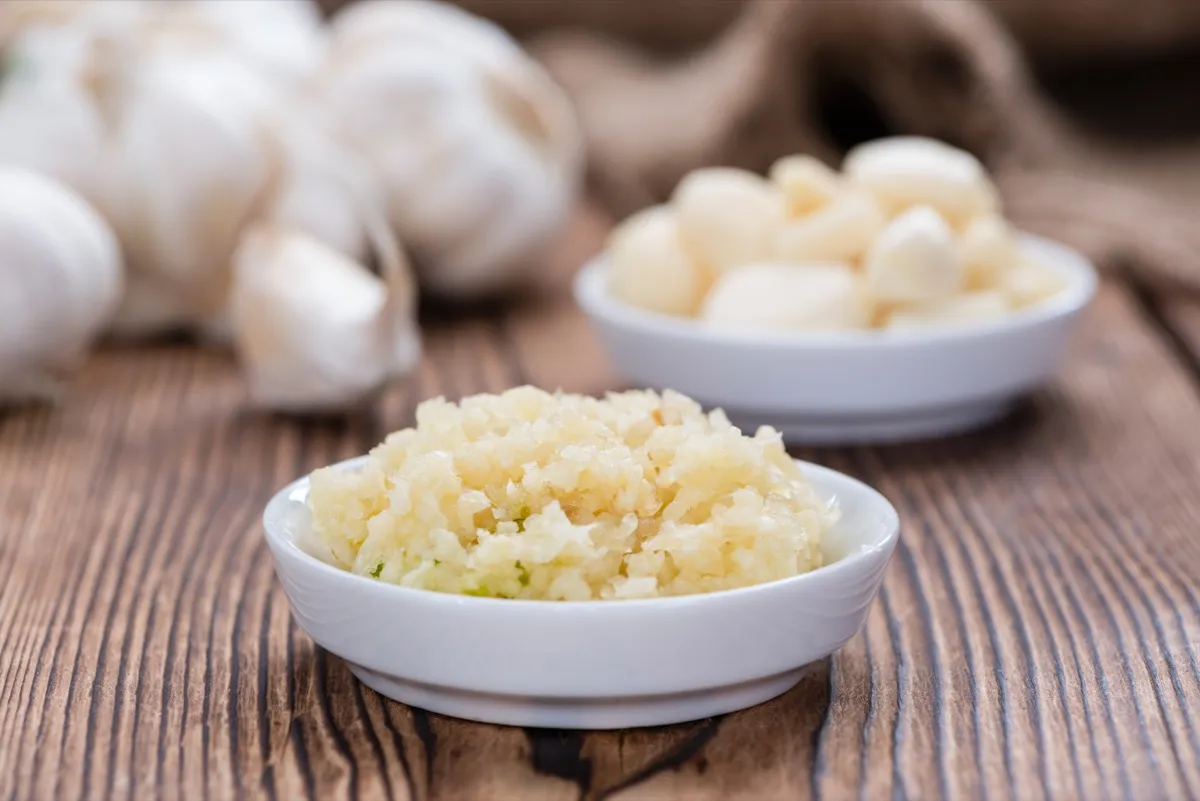
Garlic can be found in a wide range of cuisines—and this is great news for your joint health.
“Garlic is known for its anti-inflammatory and antioxidant properties,” says Mohr. “These qualities make it beneficial not only for joint health but for overall immune function.”
RELATED: 7 Foods to Avoid With High Blood Pressure, Doctors Say.
7
Green tea
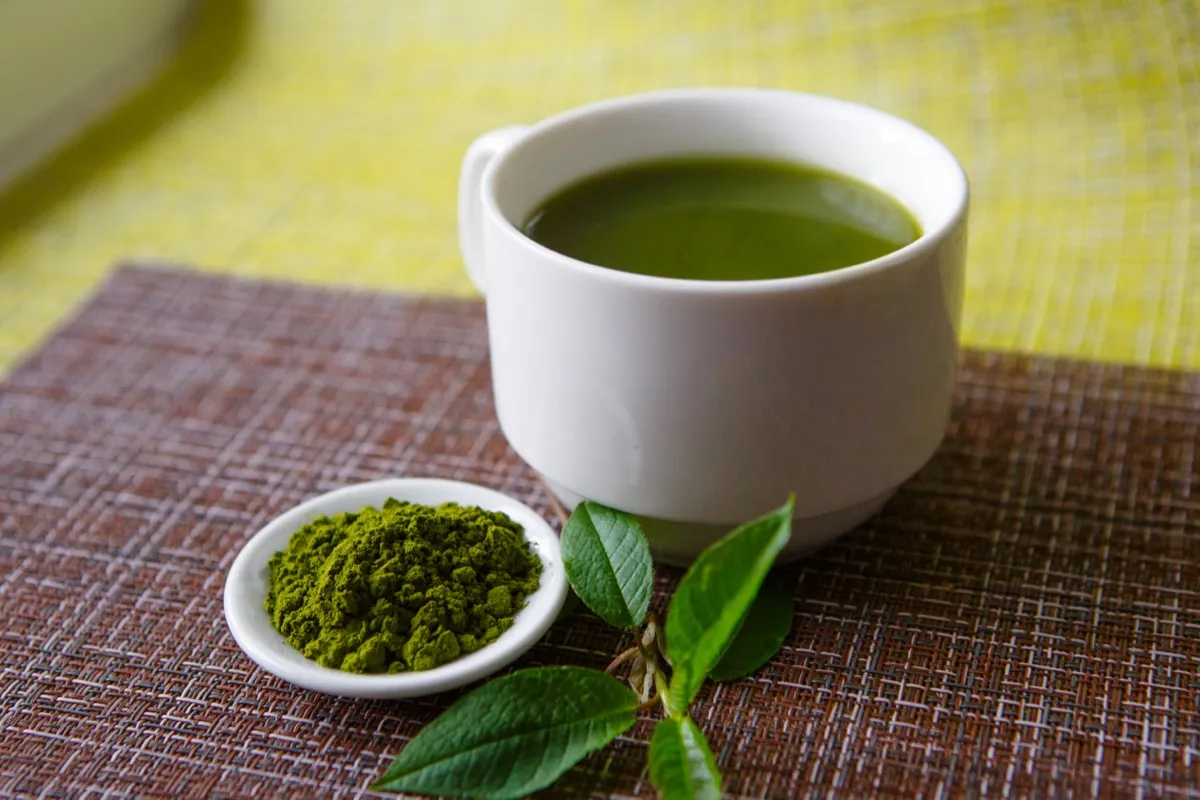
Next, Dasgupta points out that green tea contains plenty of polyphenols and antioxidants that are “exceptional at fighting inflammation.” Recent research also confirms that green tea can have a significant impact on joint health.
“Emerging evidence suggests that green tea catechins play an important role in maintaining healthy joints and skeletal muscle,” confirms a 2020 study published in the journal Antioxidants, which looked at the effects of green tea on joint and skeletal muscle health.
“Green tea and its major bioactive component of the polyphenolic fraction of green tea, EGCG, have been suggested to be capable of protecting against cartilage loss and reducing the progression of osteoarthritis (OA) in the past decade,” the study authors write.
8
Bone broth
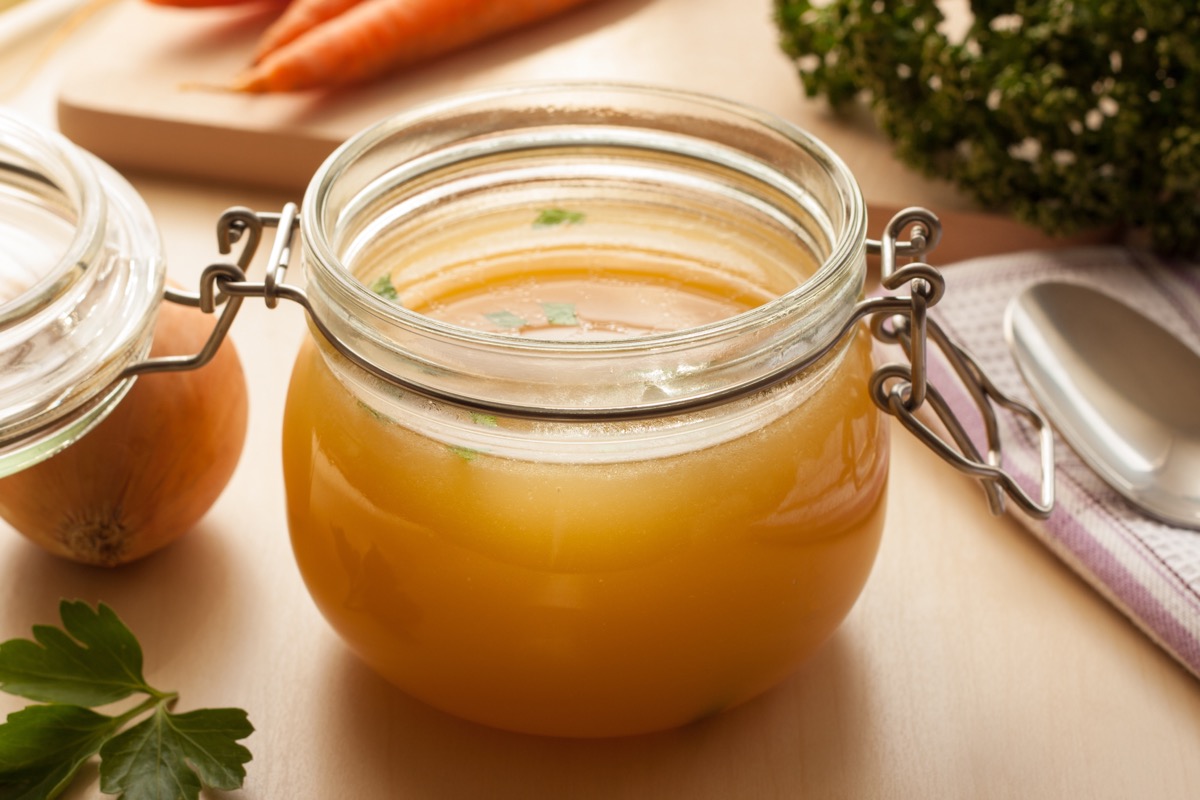
Bone broth is another effective dietary addition. “Bone broth is loaded with collagen, gelatin, as well as glucosamine and chondroitin, which are natural compounds found in cartilage, the connective tissue that cushions joints,” Dasgupta explains.
RELATED: 8 Health Benefits of Drinking Cranberry Juice, According to Doctors.
9
Berries and citrus fruits

Berries, including strawberries, blueberries, and blackberries, are another great choice for improving your joint health. In fact, a 2016 animal study published in the journal Biomedicine and Pharmacotherapy found that consuming blueberry extract reduced tissue swelling and edema by 30 percent while also reducing markers of inflammation.
“Berries are filled with nutrients like antioxidants, vitamins, and minerals, including vitamin C, potassium, and fiber, which all help prevent chronic inflammation and maintain healthy collagen, which is needed for healthy cartilage,” says Mohr.
Citrus fruits are similarly beneficial. “Oranges are high in vitamin C, which is crucial for collagen synthesis,” Dasgupta notes. “Collagen is a key component of cartilage, so vitamin C helps support joint and cartilage health.”
10
Whole Grains
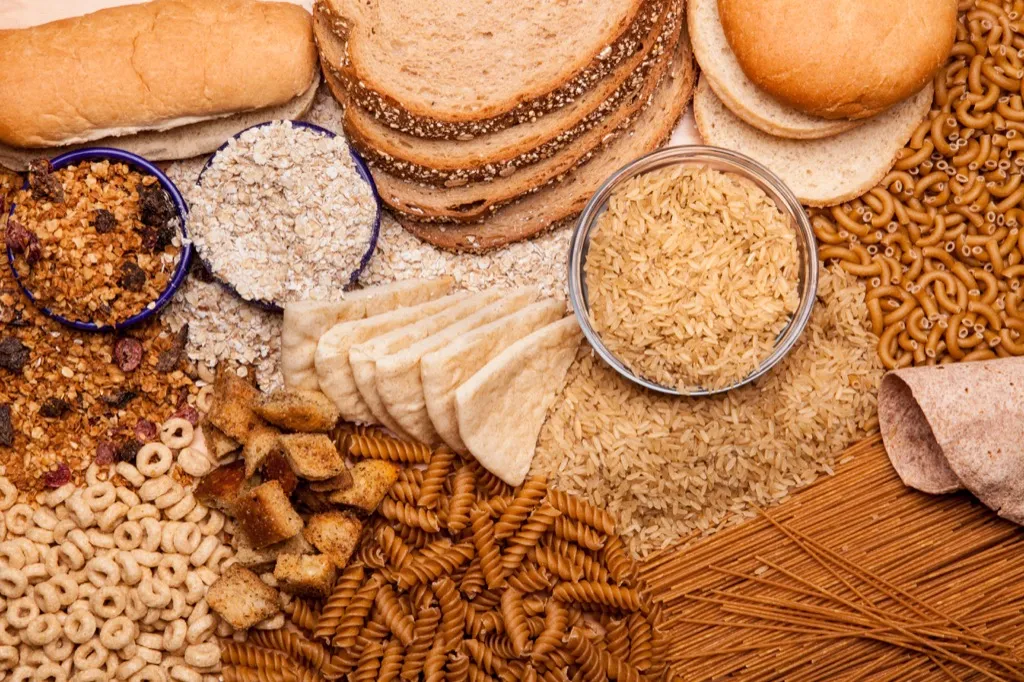
As a 2022 study published in the journal Nutrients points out, foods made with whole grains are rich in nutrients, dietary fiber, antioxidants, and phytochemicals—meaning they “have potential to act in an anti-inflammatory manner, which could help impact chronic disease risk.”
“Whole grains may help lower levels of C-reactive protein (CRP) in the blood, which is a marker of inflammation,” says Mohr, referencing this study. “These grains provide energy and are also packed with fiber, which can help maintain a healthy weight, which reduces stress on the joints.”
- Source: Quality of Life Research: Health-related quality of life in adults reporting arthritis
- Source: Arthritis Foundation: Best Fish for Arthritis
- Source: Arthritis Foundation: Benefits of Olive Oil for Arthritis
- Source: Journal of Medicinal Food: Acute Effects of Turmeric Extracts on Knee Joint Pain
- Source: Arthritis Foundation: Does Ginger Help Arthritis?
- Source: Antioxidants: Impacts of Green Tea on Joint and Skeletal Muscle Health
- Source: Biomedicine & Pharmacotherapy: Protective effects of a blueberry extract in acute inflammation and collagen-induced arthritis in the rat
- Source: Nutrients: Whole Grain Consumption and Inflammatory Markers